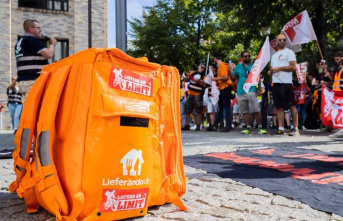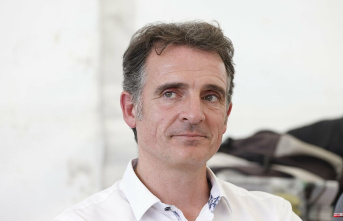The outlook is not good for Valneva. The European Commission plans to terminate its contract to supply vaccines against Covid-19 with the Franco-Austrian pharmaceutical group, the latter announced in a press release on Monday. The contract signed between the Commission and the group gave the latter the right to terminate it if the vaccine developed by Valneva, called VLA2001, had not received marketing authorization from the European Agency Medicines (EMA) as of April 30, 2022, recalls the pharmaceutical group.
"Under the terms of the contract, Valneva has 30 days from May 13, 2022 to obtain marketing authorization or propose a plan to remedy the situation in an acceptable manner", specifies the group. Valneva "will work with the European Commission and member states participating in the agreement to agree on such a plan and make VLA2001 available to member states that wish to obtain the vaccine," he added.
A decision deemed "regrettable" by the group
At the end of April, Valneva had received a new list of questions from the EMA. In Monday's statement, group chief executive Thomas Lingelbach said he "answered these questions on May 2" and "believes that his submission provides sufficient answers to the remaining questions." If the EMA "accepts these responses", Valneva "could obtain a positive opinion no later than June 2022".
He calls the European Commission's decision "regrettable", "especially as we continue to receive messages from Europeans who are looking for a more traditional vaccine solution". Valneva's vaccine is based on an inactivated virus.
Read alsoVaccines against Covid: Pfizer, Moderna… should we end the monopoly of messenger RNA?
Compared to the anti-Covid vaccines authorized in the EU, it is a more traditional technology than the Pfizer/BioNTech or Moderna vaccines, with messenger RNA, and, to a lesser extent than those of AstraZeneca and Johnson
9












